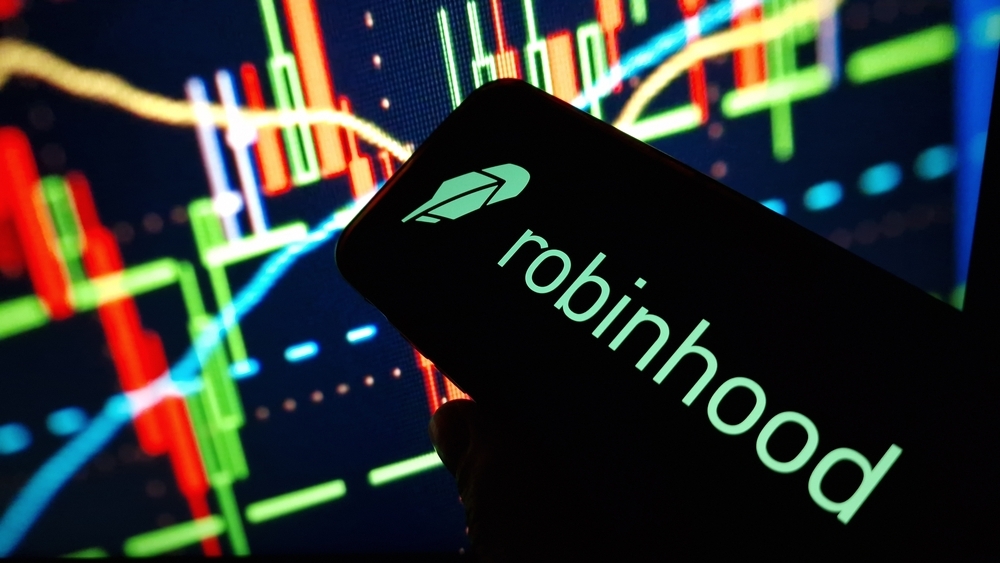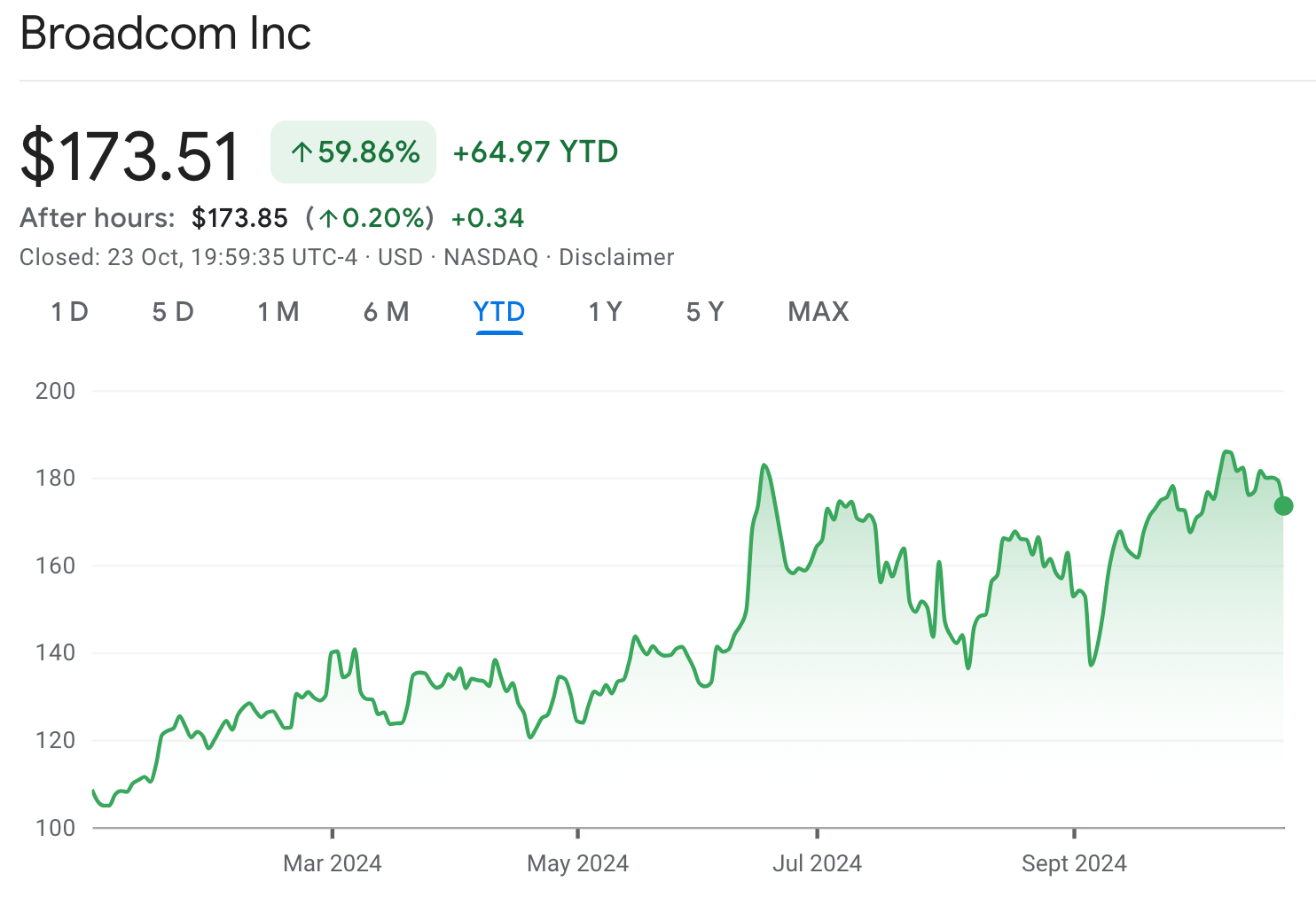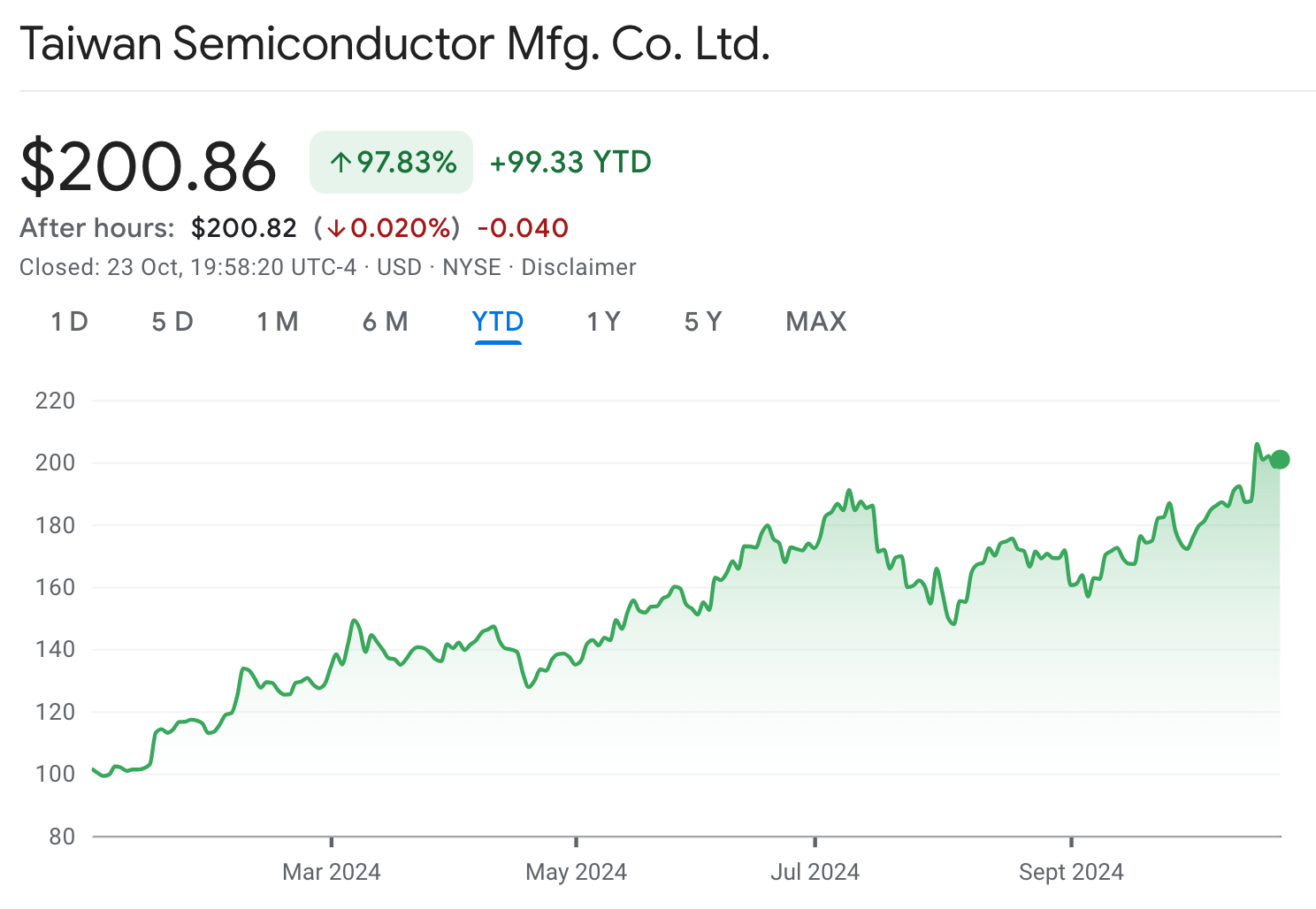
Investing in the stock market has never been easier.
What used to be a complicated process, limited to a select few, is now accessible to almost anyone with an internet connection and a few extra dollars.
The issue? It might be too easy.
The pandemic, paired with stimulus money and low-cost platforms like Robinhood, brought in a surge of retail investors—labeled “Generation Investor” by Schwab.
With apps like Robinhood, most adults can now purchase stocks in just a few minutes from their couch.
The challenge isn’t accessing the stock market anymore; it’s figuring out what to buy.
Many investors simply follow the crowd, investing in overhyped names from lists like Robinhood's Top 100, which feature stocks like Tesla, Apple, and Amazon, or even meme stocks like GameStop.
While these lists can serve as a starting point for research, they aren’t always the best guide for finding stocks tailored to your investment style.
Consider this: there’s a big difference between a company like Apple, with solid fundamentals, and a stock like GameStop, driven largely by hype and momentum.
What you’ll find here, instead, are three handpicked stocks we like. All three have strong fundamentals, proven track records, and the potential for long-term outperformance.
Unlike meme stocks that can be wildly volatile, these are meant for buy-and-hold investors.
Think of it this way: you’re not just buying a stock; you’re buying a share in a solid company. The stocks on this list are attractive precisely because the companies behind them are quickly growing, strong businesses.
As Warren Buffett says, “If a business does well, the stock eventually follows.”
So, what are the best stocks to buy right now?
Best Robinhood stocks to buy: The key ingredients
There are thousands and thousands of stocks to invest in on Robinhood.
Naturally, this sheer volume can overwhelm any investor. While it's possible to randomly pick the most popular stocks, that approach likely won't yield the results you’re after.
Lists featuring Robinhood top stocks aren’t helpful, either. Just because two stocks appear on the same top 100 list doesn’t mean they’ll perform equally well.
So, how do you choose the best stocks to invest on Robinhood?
For our best Robinhood stock picks, we analyze a company's fundamentals, such as earnings growth and its future potential.
For instance, do they have any innovative products or services that could drive significant profits—and, in turn, push the share price higher?
Only when we have a comprehensive view of a company do we determine whether it’s a good stock to buy on Robinhood.
Consistency is also crucial. You need to apply the same approach across different companies to make fair, apples-to-apples comparisons.
That’s why it's essential to use a strict, repeatable methodology. This helps eliminate emotional decision-making, relying instead on a disciplined, logical process.
One key principle in investing isn’t just buying “good stocks”; it’s investing in solid businesses behind them. Easier said than done, of course.
While there are many ways to evaluate what to buy on Robinhood, here are some of the most critical factors to consider.
- Earnings growth: Attractive earnings growth means a company has consistent, or even accelerating, earnings over time. Since these stocks are intended to be bought and held over the long term, we want to be assured they have fundamentals that signal long-term health. That is, are they the best stocks to buy and hold for 20 years?
- Healthy cash flow: Successful companies that continue to win year after year understand cash flow management. Money must be continuously available to cover daily operations. Free cash flow is also needed to pay dividends or reinvest in business expansion. Effective cash flow management is a critical but often overlooked factor when assessing good companies to invest in.
- Debt: When choosing the best stocks to own, we look for businesses that have a healthy balance sheet. This means identifying companies with low levels of debt relative to their earnings. We need to answer questions like: how easily can this company cover its debt obligations? Just like with your personal finances, all else equal, we prefer lower debt obligations coupled with higher income.
The second major bucket we assess is company-specific factors. While financial metrics are important, they don’t tell the whole picture. Often, there are qualitative factors that shape the success of a company.
- Does the company possess innovative products? For example, Tesla pioneers advanced full self-driving (FSD), which its competitors currently lack. For many consumers, FSD is the primary reason they buy a Tesla, giving the company a massive advantage over its competitors.
- Does the company have a competitive advantage (moat)? Certain businesses are better shielded from competition than others. Factors like brand strength, proprietary technology, or network effects can create a protective “moat”' around a company. Take Meta, for instance: its competitors face significant barriers to entering the social media space. With Meta's vast user base, established reputation, and powerful network effects, it's tough for a new player to claim a meaningful share of its market.
Robinhood best stocks to buy or keep an eye on (2024)
Broadcom (AVGO)

Semiconductor and infrastructure software designer Broadcom (AVGO) has seen its share price soar over 60% this year as of October 23—and it’s not difficult to see why.
The most obvious reason is that companies that have anything to do with artificial intelligence (AI) continue to outperform the rest of the market, although with higher volatility.
While Broadcom fits into this category, its revenue streams are more diversified than those of other AI-focused firms like Nvidia.
This broader base means AI represents a smaller portion of its business, reducing the company's vulnerability to the swings of a single sector.
Broadcom also holds a strong position in the fast-growing cloud computing market.
In the third quarter of its 2024 fiscal year (ending August 4), Broadcom posted a 47% year-over-year revenue increase, reaching $13 billion, largely driven by VMware sales.
Without VMware’s contribution, revenue growth would have been a more modest 4%.
Broadcom acquired VMware, a cloud-based virtual desktop service, for $69 billion in November 2023. While not directly AI-related, this business leverages the growth of cloud computing, a market currently valued at around $680 billion.
According to Mordor Intelligence, the cloud computing market is projected to more than double to $1.4 trillion within five years, with an annual growth rate of 16.4%.
Broadcom also generates significant revenue from AI-related products, such as connectivity switches and custom accelerators. Custom accelerators grew 350% year-over-year in Q3, while ethernet switches jumped 400%.
“Broadcom's third quarter results reflect continued strength in our AI semiconductor solutions and VMware. We expect AI-related revenue to hit $12 billion for fiscal 2024, driven by Ethernet networking and custom accelerators for AI data centers,” said Hock Tan, Broadcom's President and CEO, in the company’s Q3 earnings report.
Despite its strong positioning in AI and cloud computing, Broadcom has recently faced challenges with earnings. For the trailing 12 months ending August 4, the company reported $5.1 billion in earnings, a 64.2% drop. However, over the past five years, it has maintained an annual earnings growth rate of nearly 10%.
Broadcom is rated a ”Buy” with a Zacks Rank of 2 on a scale of 1 to 5, where 1 indicates a “Strong Buy” and 5 a “Strong Sell.”
In terms of ownership, 7.68% of Broadcom shares are held by institutional investors, 32.45% by insiders, and 59.87% by retail investors. The largest single shareholder is KKR Real Estate Partners Europe II, holding 5.69% of the company’s outstanding shares.
Bottom line: Broadcom is an appealing investment with strong fundamentals and a diversified revenue base, including a solid presence in both the AI and cloud computing markets, which are poised for substantial growth.
Taiwan Semiconductor (TSM)

Taiwan Semiconductor (TSM) is up 96% year-to-date, significantly outperforming the S&P 500’s already strong 22.8% return over the same period.
As the world’s largest independent semiconductor manufacturer—and Taiwan’s largest company overall—TSMC has soared in value amid the AI boom. In 2023, the company produced an astounding 60% of the world’s semiconductors, including more than 90% of the most advanced chips.
To say the AI industry relies on TSMC would be a gross understatement.
Earlier this month, TSM stock jumped nearly 10% after the company announced a 54% spike in third-quarter net profit. Revenue reached $23.5 billion, a 36% year-over-year increase.
During the earnings call, CFO Wendell Huang projected further growth in Q4, with revenue expected between $26.1 billion and $26.9 billion, a roughly 35% year-over-year increase.
Chairman and CEO C.C. Wei echoed this optimism, stating that AI demand is “real” and that TSMC is seeing the “deepest and widest growth” in the industry during the latest quarter.
“We are in constant communication with our customers, including hyperscalers building their own chips, and nearly every AI innovator is working with TSMC,” Wei added.
Like Broadcom, Taiwan Semiconductor holds a “Buy” rating of 2 from Zacks, which also ranks it among the top 1% in the semiconductor (circuit foundry) industry.
TSMC’s growth momentum shows no signs of slowing.
Earlier this year, the company opened its first production plant in Japan and secured a $6.6 billion subsidy from the U.S. Commerce Department to build advanced chips in Phoenix, Arizona.
As part of this initiative, TSMC committed to expanding its U.S. investment to $65 billion, including plans for a third fabrication facility in Arizona by the end of the decade.
TSMC’s unmatched expertise in advanced chip production gives it a significant competitive moat. Its specialization is difficult, if not impossible, for competitors to replicate.
Coupled with a promising and expanding revenue stream, TSMC stands out as one of the top potential additions to your portfolio.
Netflix (NFLX)

Despite increasing competition, Netflix (NFLX) continues to lead the pack in the streaming industry.
This year alone, the company has gained 22 million new subscribers despite rising membership fees and a crackdown on password sharing.
Interestingly, these moves may have helped boost subscriptions.
Although the password-sharing crackdown may have frustrated some users, it appears to have driven more people to sign up for their own accounts, adding to subscriber growth.
But Netflix didn’t leave its subscribers without options. To cushion the blow for its users, the streamer introduced an ad-supported tier, which has been well-received.
Between January and May 2024, subscribers to the ad-supported plan nearly doubled from 23 million to 40 million, with 40% of all new signups opting for the ad tier in markets where it’s available.
On the revenue front, Netflix brought in $9.83 billion in Q3, surpassing Bloomberg's estimate of $9.78 billion and marking a 15% increase over Q3 2023.
Like Broadridge, Netflix holds a "Buy" rating of 2 from Zacks.
In terms of earnings, the company recorded $7.8 billion for the year ending September 30, reflecting a substantial 77% year-over-year increase. In Q3 alone, Netflix generated $2.4 billion in earnings, a more than 10% increase from the previous quarter.
Although subscriber growth slowed in Q3, the company still exceeded expectations by adding 5 million paid subscribers, well above the forecast of 4.5 million.
Despite a crowded streaming landscape, Netflix remains a dominant force.
Its wide-ranging content library and top-tier user experience are key factors in its continued relevance and market leadership.
Consider external factors before buying stocks on Robinhood
It’s not just a company’s fundamentals that matter. In fact, external factors can sometimes impact a stock’s price more than any financial metrics.
Consider today’s macro environment.
The Federal Reserve is looking to unwind its aggressive rate-tightening campaign—a generally positive catalyst for stocks.
On the other hand, there’s a contentious presidential election in the world’s largest economy, along with ongoing geopolitical tensions in Eastern Europe and the Middle East.
It’s hardly surprising that markets have been particularly volatile this year. Since January 1, the CBOE Volatility Index, commonly known as the VIX, has surged over 44%.
As a result, it’s crucial to monitor external factors when investing in stocks. While the companies highlighted above are some of the best, broader market conditions can quickly overshadow even the most promising stocks.
In 2024, we’ve seen three significant pullbacks in the broader market:

- April: The S&P 500 fell roughly 4.2%, marking its first monthly decline in six months. Elevated inflation and concerns about the Fed maintaining higher interest rates for longer drove this drop.
- July/August: A global slowdown and the potential for further rate hikes suppressed the stock market, particularly impacting tech stocks, which experienced heightened sell-offs.
- September: A weak economic outlook, combined with a struggling economy in China, briefly pulled equity markets down.
Despite these pullbacks, the S&P 500 remains in positive territory for the year, up over 22%.
So, while it’s important to pay attention to external factors, don’t get too fixated on them because macro conditions are some of the hardest to predict. After all, no one has a crystal ball.
Meanwhile, focus on investing in stocks with strong fundamentals, such as high earnings growth, robust cash flow, and a healthy balance sheet.
Over time, these stocks can deliver meaningful returns to your portfolio, even when experiencing occasional pullbacks.
FAQ
What are the best stocks to invest in on Robinhood?
There’s no definitive “best stock” to purchase, as each investor has different risk profiles and goals. However, some of our top picks include Taiwan Semiconductor Manufacturing Company Limited ($TSM), Broadcom (AVGO), and Netflix (NFLX).
Is Robinhood good for beginners?
Yes, Robinhood is a great option for beginners. It offers a low-cost, intuitive, and trustworthy platform for trading thousands of stocks.
Can you actually make money with Robinhood?
Yes, you can make money with Robinhood just like with any other stock broker. However, be aware that past performance is not indicative of future results.
Is Robinhood safe for investing a lot of money?
Robinhood is a reliable online brokerage and is generally safe for investing. The biggest risk lies in the individual stocks you choose to purchase. For instance, meme stocks like GameStop carry significantly more risk compared to less volatile companies like Apple. You might also consider avoiding penny stocks on Robinhood.
Who is the biggest investor in Robinhood?
The largest investor in Robinhood is Index Ventures VI Jersey LP, which holds 9.81% of the outstanding shares.
Your email address will not be published. Required fields are markedmarked